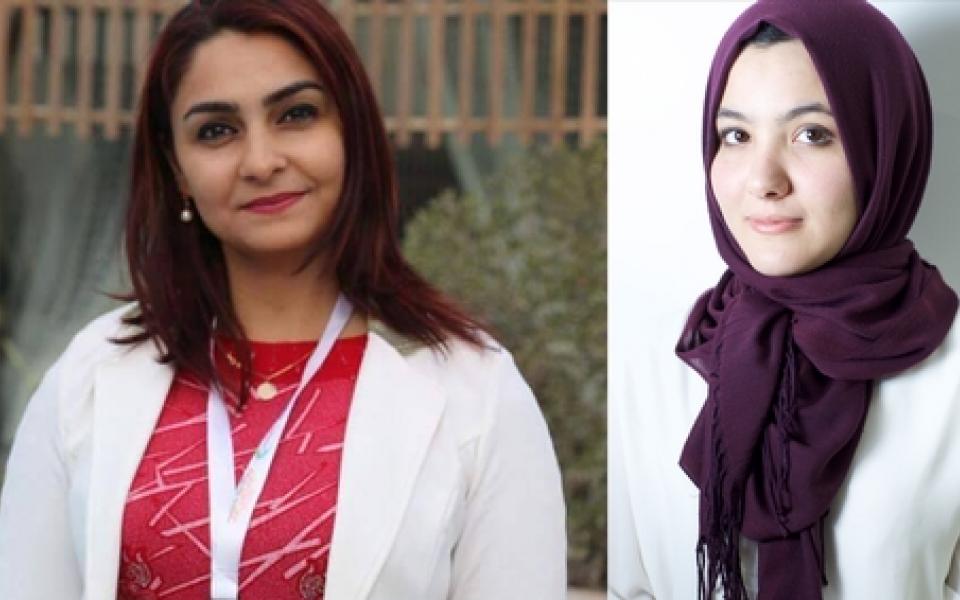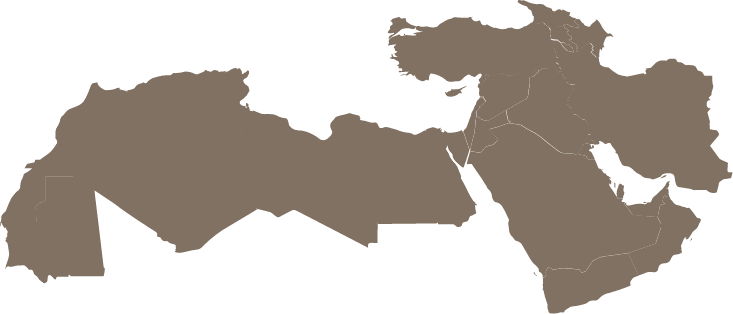
Left: Farah Hussain Al Badran, right: Nour Darwish
In recognition of International Women's Day 2017, URI recognizes two of its outstanding women leaders: Nour Darwish with Makers of Hope Cooperation Circle in Libya, and Farah Hussain Al Badran with Larsa Cooperation Circle in Iraq.
Nour Darwish
Makers of Hope Cooperation Circle, Libya
Nour Darwish is a medical student and a part-time primary school educator. She comes from a multicultural background which has given her a natural acceptance towards others who are different from her. She is an active project manager at Makers of Hope Cooperation Circle and also an active media team manager at #IamTawfik NGO. The main highlight of her work is promoting the concepts and different ways to achieve peace-building through action-based initiatives, with youth being the main targeted group of her work.
Nour is a person of many interests who believes that creativity and innovation is found in the intersection of bringing together the knowledge and skills she learns from her different pursuits. Understanding that fruitful positive change to a society damaged by war and conflict will only be possible if the primary focus is on young people, especially the children. Therefore, she considers her most proud accomplishment is being a successful change facilitator that was able to redirect and reshape the basic mindsets of her young students, focusing their attention to the importance of being peace promoters in their behaviour towards everything including the environment. To help them look through the telescope from both ends. Something she believes is vital in any approaches to peacebuilding and social change.
In the process of becoming the person she is today, she was faced with challenges, both on a social and a personal level. One of the difficult challenges for her is always trying to maintain a positive and hopeful attitude towards herself so she would be able to succeed in her difficult surroundings. With the lack of rewarding and constructive learning opportunities in Libya, she turned to self-development and self-directed learning. Nonetheless, she carries a bright vision for the future of her country as she believes in the capabilities of young people like herself.
In her opinion, the challenges of being a strong woman in Libya specifically and the world generally; is developing the right leadership skills that allows her to create a balance in her role as a leader at home and her place of work. Without having to sacrifice one for the other. The rewards of being a strong woman will be reflected in the generations she raises, a ripple effect.
Farah Hussain Al Badran
Larsa Cooperation Circle, Iraq
Farah is the Management Commission Member of the Larsa Organization, a URI Cooperation Circle in Iraq. She relates her story:
“During my time with IAA, I was terribly touched by the miserable conditions of life by which our Iraqi people, especially women and children in the villages are suffering from Illiteracy, bad health, and various violence factors. So, I decided to do my very best to bring this important half of the society to the paths which lead to Human Rights implementation and participation in building the country on basis of equality and then prosperity and welfare. This became my life's main target and I hope will reach it through the work with serious and active NGOs.”
“I work with a group of different religions; Muslim, Christian, etc. I like this because it is the future of Iraq. But now there is no peace between religions. Since 2003, there has been no peace between people. People of different religions from me look at me like we’re different. But I like working with this group because there is no fight between us. We work together. We help people. We teach people how to accept each other, to accept me whoever I am. Christian, Muslim - whoever I am.”
